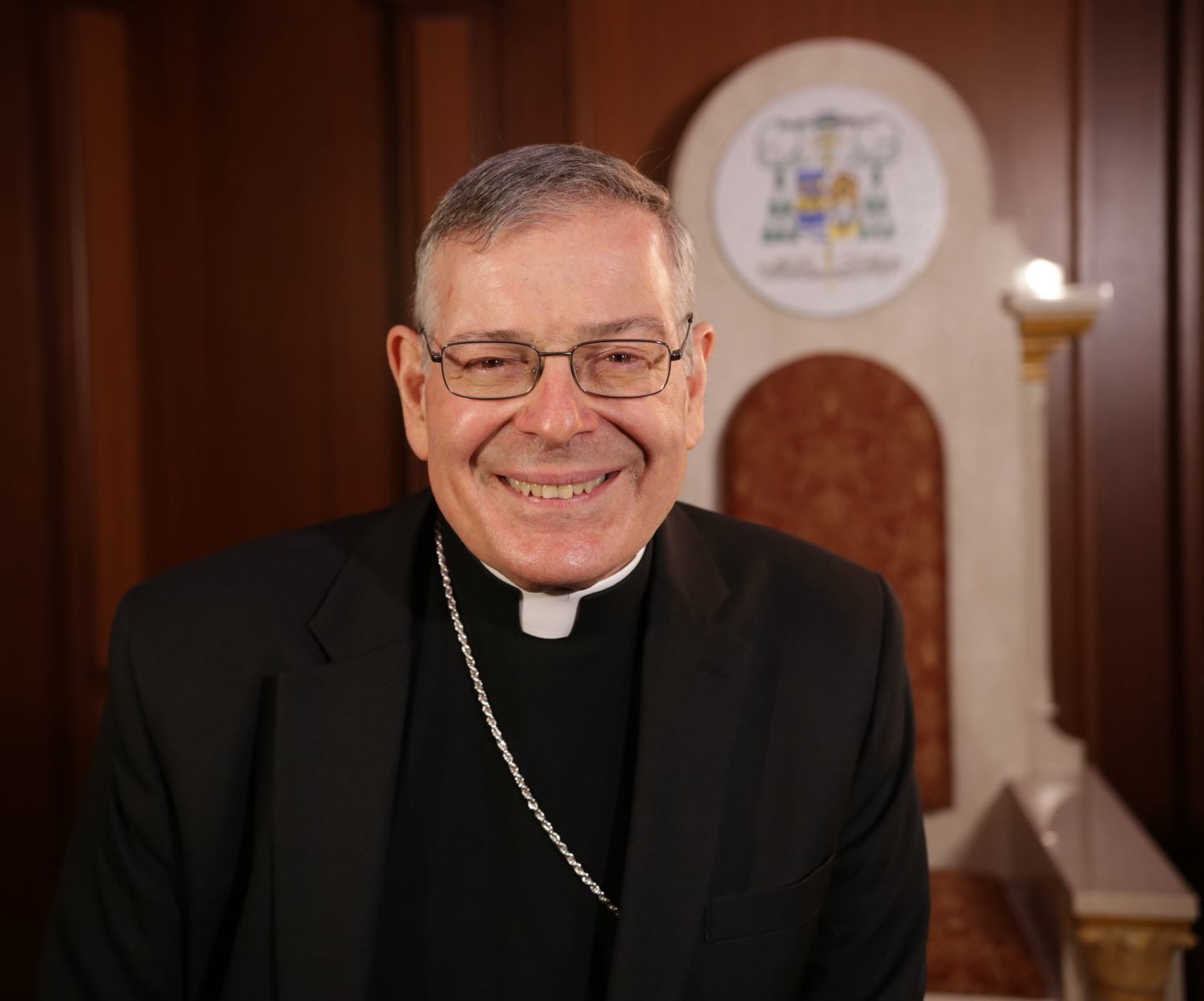
At the beginning of August, in this column, I reflected upon the life and legacy of Saint Ignatius of Loyola as we had just celebrated his feast day at our Cathedral of Saint Ignatius Loyola and also blessed a beautiful new statue in his honor. Just a few days previous to this celebration, on July 27, another celebration, of a saint took place at Saint Jude Parish in Boca Raton. It was that of the first feast day of Saint Titus Brandsma, recently canonized a saint on May 15 by Pope Francis.
Saint Titus Brandsma also has a special place in our Diocese as it was through his intercession that a miracle was carried out here. As many know, Father Michael Driscoll, a Carmelite priest at Saint Jude, who was formerly its pastor, some years ago had been diagnosed with a terminal case of cancer. Since all medical possibilities could not assist, Father Driscoll prayed to Father Titus, a Carmelite priest, for a cure. Father Titus had been beatified and a miracle would be required for his eventual canonization. The cure came about and no plausible medical explanation could be given for it. A thorough canonical investigation of the cure was undertaken, and the positive result was forwarded to Rome for consideration. It was their decision that the miracle did occur, and this was the ultimate reason Pope Francis canonized Titus Brandsma on May 15 of this year.
Saint Titus was born on February 23, 1881. He was the sixth child of a devout and faith filled family. His five brothers and sisters entered religious life. Saint Titus was drawn to religious life at an early age and considered becoming a Jesuit, a Franciscan, a Trappist, as well as a Carthusian. However, he was drawn to join the Carmelites because of his devotion to Mary. He expressed, “The spirituality of Carmel, which is a life of prayer and of tender devotion to Mary, brought me to the happy decision to embrace this life.”
Saint Titus desired to be a missionary. However, his health was not up to the demands of this type of life. It was decided that he would carry out his ministry for the Carmelites as a professor and communicator. He was gifted at both of these roles. He was especially interested in mysticism and taught and communicated about this Christian role of life for everyone. One of his students spoke about Titus as a person with “mysticism on the move.” The student said, “He was a mystic on the continent of Europe who had a season railroad ticket and who became holy in train compartments.”
While engaged in his academic outreach, Saint Titus was known for his loving care for all and especially for his outreach towards the poor. There are many accounts of his giving away money, his overcoat and even the blankets from his bed. He was known to assist an old man in pushing his junk wagon up the hill between the university and the Carmel, putting his professional briefcase on top while he assisted.
As an active communicator, Saint Titus spoke and wrote boldly against Nazism which was so prevalent at the time. He made a rigorous critique of National Socialism as part of his university courses and often gave bold homilies in opposition to Nazi ideology. This caused him to be arrested on January 19, 1942, and placed in the prison of Dachau. At Dachau, he was known for his outreach and care for the prisoners and became an example and source of hope to those with whom he was imprisoned. He even forgave his captors for his imprisonment. Six months after his imprisonment, he was killed by lethal injection on July 26, 1942, at the age of 61. It was thus that he became a martyr for the Catholic faith.
On the occasion of his execution, Saint Titus gave his rosary to the woman who administered the injection and encouraged her to use it even though she had forgotten how to pray. She had turned away from the Catholic faith and later expressed that it was through the intercession of Saint Titus that she came back. The saint’s final words, “Let your will, not mine, be done, O Lord,” made a lasting impression on her. She attended the beatification of Saint Titus by Pope Saint John Paul II, on November 3, 1985.
We are truly blessed to have a miracle occur within our Diocese through the intercession of Saint Titus Brandsma. He is a great example to all of us who are living the Christian life in our daily lives as God calls us. He is very different from Saint Ignatius of Loyola, but reminds us, as Saint Ignatius and all the saints do, that God calls us all to holiness and to be saints through our daily lives. The way we carry that out is by living our lives with faith in Christ and love for others. At the conclusion of the canonization Mass for Saint Titus Brandsma, at which Pope Francis canonized nine other saints of different backgrounds and vocations, he expressed, “Holiness does not consist of a few heroic gestures, but of many small acts of daily love. This is the path to holiness, and it is so simple! To see Jesus always in others.”
A beautiful prayer poem of Saint Titus is:
For, Jesus you were at my side:
Never so close did we abide.
Stay with me Jesus, my delight,
Your presence makes all things right.
Most Reverend Gerald M. Barbarito
August 26

